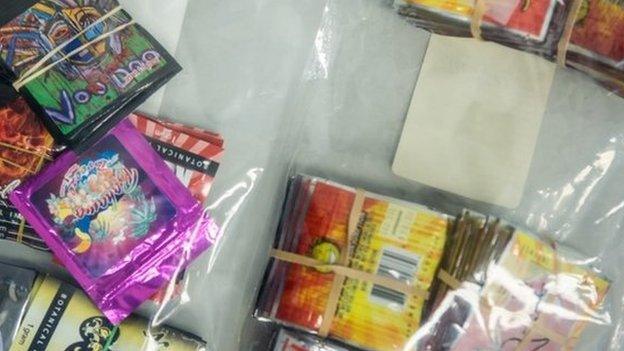Legal high abuse ambulance calls soar in South East
- Published
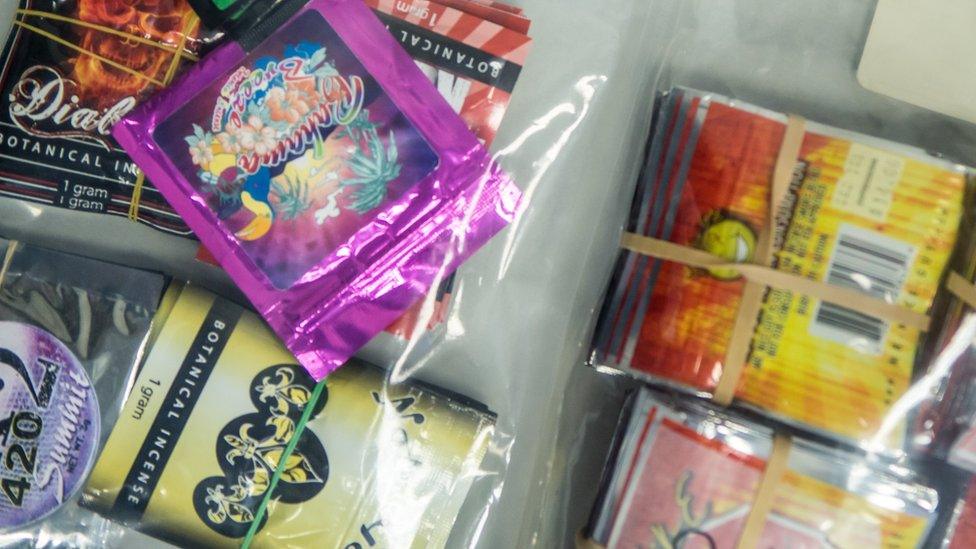
Legal highs produce similar effects to illegal drugs such as cocaine and ecstasy
The number of 999 calls made in the South East over the abuse of so-called legal highs has soared.
Figures released to the BBC showed there were just five calls made to paramedics in Kent, Sussex and Surrey between April 2011 and March 2012.
However, in the same 12-month period in 2014/15 the South East Coast Ambulance Service (Secamb) was called 196 times.
The GMB, which represents ambulance crews, said there was "no doubt" members had seen legal high use rise.
Gary Palmer, from the union, said: "Of course the consequence of that does mean there's going to be an ever increasing need to transport those patients to local A&E's for further treatment.
"The nature of these drugs are that... new ones are invented almost on a weekly basis and you have the unpredictability of the reaction."
Note: The 2015/16 figures go up to - and include - October 2015.
The substances produce similar effects to illegal drugs, but are not controlled under the Misuse of Drugs Act.
They cannot be sold for human consumption, but are often given labels such as "plant food" to get around the law.
Despite the increase in calls to the ambulance service, Mr Palmer said the main cause of concern remains "readily available alcohol", which he described as the "biggest bane" for paramedics and A&E nurses.

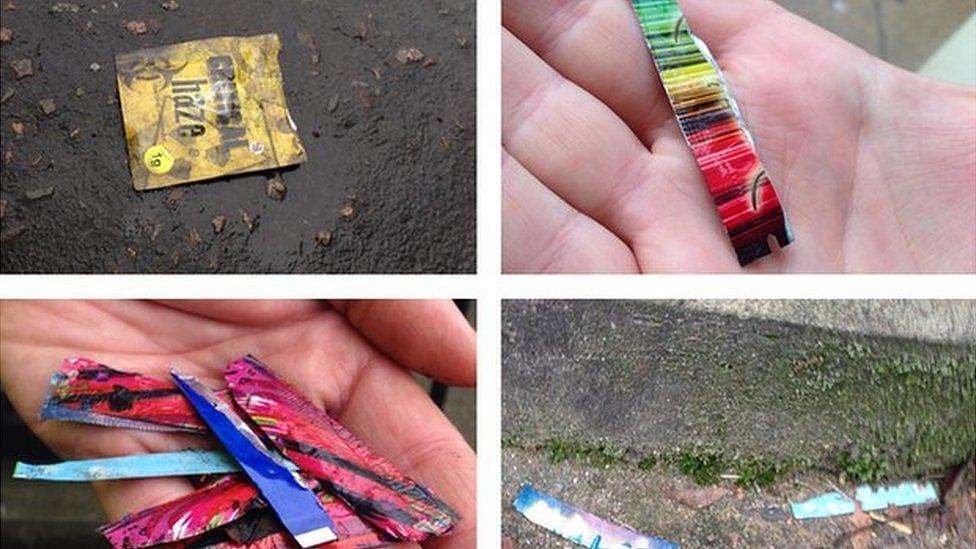
What are legal highs?
Legal highs produce the same, or similar effects, to drugs such as cocaine and ecstasy, but are not controlled under the Misuse of Drugs Act
In many cases, they are designed to mimic class A drugs, but are structurally different enough to avoid being classified as illegal, so it is legal to possess and use them
They cannot be sold for human consumption, but are often given labels such as "plant food" to get around the law
The chemicals are made on an industrial scale in countries like China and India and then packaged and distributed throughout Europe

A Secamb spokeswoman said: "So called 'legal highs' are extremely dangerous and crews see first-hand the effect they have on people who use them.
"We would strongly urge everyone to avoid them along with any other class of drug.
"As ever, we'd also urge them to be sensible when it comes to drinking alcohol to avoid an unnecessary visit from us and potentially to A&E."
The government has announced new legislation to make it an offence to produce, supply, import or export legal highs.
The Psychoactive Substances Bill is being debated in Parliament and may come into force in spring 2016.
- Published25 October 2015
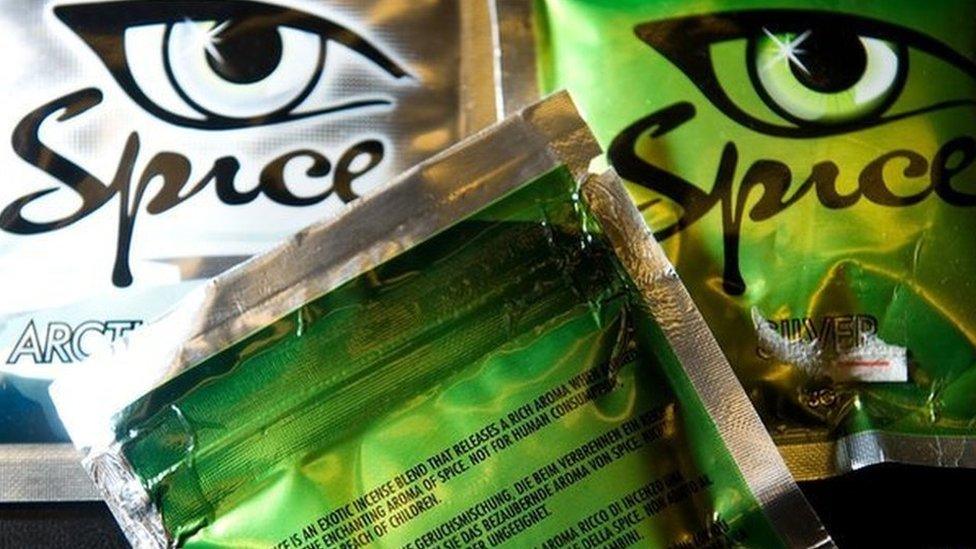
- Published26 May 2016
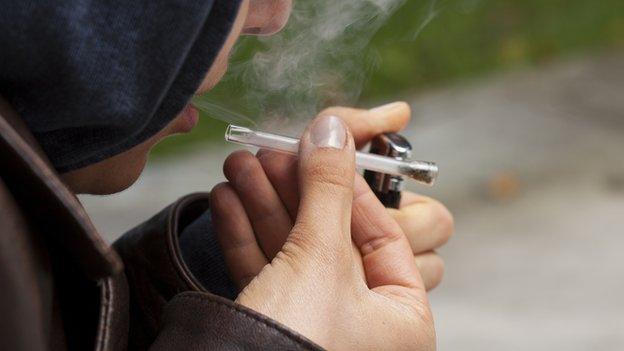
- Published30 March 2015

- Published29 May 2015
